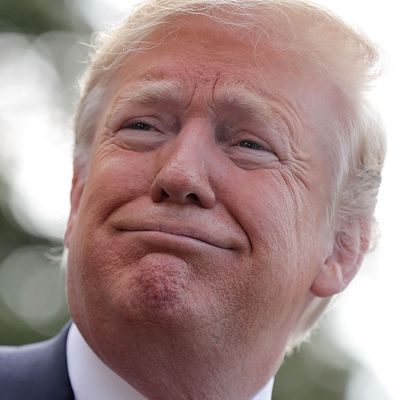
President Trump has been waging a trade war on a variety of American allies. His tool, ironically enough, is a 1962 law giving the president unilateral authority to raise tariffs for national security reasons. Trump has extremely wide latitude to define “national security” as he sees fit, even for policy goals that are not only unrelated to but obviously contrary to national security. But he might have undermined his own ploy.
Some of the unwitting conscripts in Trump’s trade war are filing suit to block his tariffs. “Legal scholars say the efforts face long odds in prevailing,” reported the Wall Street Journal in March, because “Courts generally give the president wide latitude when it comes to national security, lawyers say, and the same is true when it comes to tariffs.”
This is the rub. Trump is the commander in chief, and if he says he is doing something for national security reasons, it’s hard to disprove it. As one judge asserted during preliminary arguments over the case, it would take a “mind reader” to establish that Trump’s motivation is not what he says.
But what if Trump decided to just come out and admit it? Like this:
Trump is saying he is going to raise tariffs “in response” to Canada’s dairy protections. His words!
It’s possible Trump’s authority is so broad it won’t even matter. But if there was any possible way for his tariffs to fail in court, it would be because he decided to blurt out an explicit confession that his motive is not the one is is legally obligated to base it on. It would not be the first time Trump undermined his own legal case by simply admitting his hidden motives without any prodding.






























